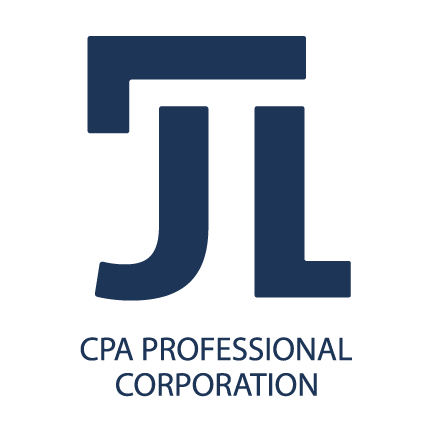Overcoming Complex Construction Accounting Regulations
In the dynamic world of construction, accurate financial management is the cornerstone of success. Construction accounting plays a pivotal role in ensuring that projects stay on track, budgets remain under control and profitability is optimized.
As the various sizes and complexities of different construction projects changes, so do the complexities of accounting practices. From revenue recognition and work-in-progress accounting to adhering to industry-specific standards and stakeholder requirements, construction companies must navigate a maze of regulations that can easily become overwhelming.
Thankfully, there is a light at the end of the tunnel – Outsourced Accounting. This is an effective strategy to overcome these challenges because outsourced accounting firms offer construction companies the expertise and assistance needed to remain compliant while streamlining financial operations.
How can you overcome complex construction accounting regulations with outsourced accounting?
Let’s get started!
Regulations Impacting Construction Accounting
In the Canadian construction industry, there are various regulations that significantly impact the financial practices of construction companies. Let’s dive into six key regulations that shapes the industry’s financial landscape.
1️⃣ Revenue Recognition and Work-in-Progress Accounting (GAAP)
Accurate revenue recognition is vital for construction companies to reflect the true performance of their projects. Regulatory guidelines dictate when and how to recognize revenue from long-term contracts; the most common are Completed Contract Method and Percentage of Completion Method. I’m sure this is not new for you.
For the purposes of this blog, I won’t go in-depth into this topic but if you want to learn more, check out this blog on the Construction Work in Progress Report.
2️⃣ Canada Revenue Agency
The CRA sets forth guidelines related to tax and deductions specific to the construction industry. Examples that may apply to construction companies are the GST/HST, Import accounts if you import products or services from outside Canada, Corporate Tax and/or Payroll.
Understanding and adhering to these regulations is critical in ensuring compliance with the tax authorities.
3️⃣ Accounting Frameworks (IFRS, ASPE, US GAAP)
Various accounting frameworks like International Financial Reporting Standards (IFRS), Accounting Standards for Private Enterprises (ASPE) and US Generally Accepted Accounting Principles (US GAAP) are just accounting jargon to you.
As you are an owner of a construction business, or work in the construction industry, these frameworks are not something you need to know since your accountant will help you determine whether or not these applies.
Understanding and adhering to these frameworks is critical in ensuring compliance with these standards and provides confidence to various stakeholders.
4️⃣ Ministry of Finance Employer Health Tax (EHT)
If you have employees on your payroll, you may be subject to Ministry of Finance’s Employer Health Tax regulations. If you meet certain requirements and are over the tax exemption threshold, EHT becomes mandatory to file and pay which is based off a percentage of the employee’s remuneration.
It’s important to ensure compliance with this regulation to avoid penalties and interest.
5️⃣ Workplace Safety Insurance Board (WSIB)/Worker’s Compensation Board (WCB)
Depending on your province, it may be called Workplace Safety Insurance Board (WSIB) or Worker’s Compensation Board (WCB). This is another regulation that applies if you have employees.
The construction industry is typically not exempt from WSIB and becomes mandatory to file and pay. The premium rate depends on the relevant class (for construction, it’s class G) and it’s also based on employee’s remuneration.
It’s important to ensure compliance with this regulation to avoid penalties and interest.
6️⃣ Union Collective Agreements
If your construction company is part of a union or you hire employees of various unions, you are subject to the requirements indicated in the various union collective agreements. These outlines the wages, benefits, conditions for overtime or double time as well as travel allowances.
This is another regulation that applies for employees on your payroll. The collective agreements aren’t solely related to payroll but also for operations. On a recurring basis, construction companies are typically required to submit a filing and remit any payment to the union.
It’s important to ensure compliance with this regulation to avoid penalties and interest.
Components of Construction Accounting Compliance
With these regulations above, it’s important to ensure compliance with these requirements as it’s essential for accurate financial reporting and sustainable business growth. Let’s explore four essential components of compliance.
Revenue Recognition Methods
Choosing the appropriate revenue recognition method is important depending on stakeholder needs. There are typically two common methods that are available that construction companies can choose from and it’s important that note that it applies for all your projects.
Percentage of Completion Method
The Percentage of Completion Method recognizes revenues and earnings systematically over the life of the project based on percentage of work completed and is determined on a project-by-project basis.
This method is useful if the projects tend to be longer in duration and you can reliably estimate the costs. This is the most common method as most stakeholders like sureties require.
Completed Contract Method
The Completed Contract Method recognizes revenues and earnings only once a project is completed and is also determined on a project-by-project basis.
This method is useful if the projects have a short-term duration or if you can’t reliably estimate the costs.
Project Cost Allocation
Under either of the above methods, allocating costs properly to the projects is crucial for Work in Progress tracking and accurate project costing. It’s important that these costs are tracked in such a way that can allow you to make reliable cost estimates and to support decision making.
Labour
This may include direct labour such as project manager, site supervisor, carpenter, installer, project administrator, etc. which you can directly attributable to a project. These are typically tracked and costed to the job via timesheets and approvals through the regular payroll process. Make sure it also includes any payroll burdens to reflect the true cost of labour.
Materials
Project costs also include direct materials that are required for the project. If you are a drywall company, you would most likely need to purchase steel studs, screws, drywall and wood, as an example.
Subcontractors
If you hire subcontractors, these are direct costs related to the specific project. For example, if you are a general contractor building a house, you may need to hire subcontractors for excavation, M&E or masonry.
Equipment
For every project, you may need equipment to help you finish a job; either through renting or an equipment that your construction company owns. If you are building a high-rise, you will most likely need a tower crane to help to hoist materials.
For renting or leasing, this is easy to attribute to the project as the invoice from the vendor usually specifies which project it’s for. For equipment that your construction company owns, it’s also ideal to allocate some type of cost (like depreciation or maintenance) to the project to ensure all costs are captured.
Contract Management
For every type of construction project, contracts are always involved that identify the terms and conditions of the contract, scope of work and payment terms. This may be a standard CCDC contract or just a simple type of contract.
Contracts are usually set up between Customers and a Contractor and also between a Contractor and their subcontractors. Here are three main areas of contract management.
Billing
Unless otherwise indicated in the contract, billings are typically done on a monthly basis. It’s essential that all requirements set out in the contract are adhered to when submitting billings for both billings to customers and invoices from vendors.
Change Order Management
Handling change orders effectively is important from a contract, relationship and accounting compliance perspective. For all approved change orders, there should be a document outlining what the change order is for, the amount and if subcontractors are involved which are signed by both parties. This is also relevant for change orders issued between contractor and subcontractor.
This helps in accounting for Work-in-Progress as this can help substantiate the increase in the contract value and contract cost.
Retainage Management
Retainage, also known as holdback, is typically required in the construction industry. The Construction Act sets out a 10% holdback and each customer may or may not add in additional holdback.
Tracking retainage properly against the project and on the financial statements is also important from a contract and accounting compliance perspective. This needs to be tracked properly every time there is a billing to ensure that the amount of holdback at the end of the project is accurate before you receive or pay it. The above also prevents you from reconciling the project at the end where it may take a significantly longer time and effort to do.
There are also specific requirements for claiming Input Tax Credits on Holdback Payable amounts. In general, your company cannot claim an Input Tax Credit until the holdback is paid to subcontractors.
Cost Estimation
Accurate cost estimation is extremely important if you are using the percentage of completion method because the underlying nature of this method is based on estimates. I mentioned above that the costs should be tracked in such a way that can allow you to make reliable cost estimates in order to manage construction cost and support decision making.
The best place to start is from the Project Budget. It’s ideal when estimating costs on the project for a bid that it’s detailed enough so you can compare with the actual costs. This will greatly help with estimating cost throughout the project and make it more accurate. Keep in mind that the cost estimate is always based on a point in time.
Navigating the Complexity through Expert Outsourced Accounting
Navigating the intricate web of construction accounting regulations can be a daunting task for companies in the construction industry. We’ve seen above that there are a variety of regulations that applies and various components of compliance. Expert outsourced accounting offers a reliable solution to overcome these challenges, enabling businesses to focus on their core operations while ensuring compliance.
Here are three key reasons how expert outsourced accounting can help you navigate complex accounting regulations:
1️⃣ Leverage Specialized Industry Knowledge and Expertise
Expert outsourced accounting firms are well-versed in the intricacies of construction accounting since they have specialized industry knowledge of regulations and best practices. By leveraging their expertise, construction companies can confidently address accounting regulation complexities and ensure accurate financial and management reporting.
2️⃣ Ensure Adherence to Evolving Accounting Regulations
Accounting regulations are constantly evolving and it can be challenging for construction companies to stay updated on the latest changes. These accounting firms keep abreast of these changes to ensure you are compliant and helps you to reduce the risk of non-compliance.
3️⃣ Streamlining Accounting Processes with Professional Assistance
Outsourced accounting firms uses advanced software and technology to handle tasks such as project cost tracking, revenue recognition and compliance reporting. Since they have industry knowledge and know best practices for construction companies, they are able to streamline your accounting processes. This in turn increases the accuracy, efficiency, reliability and timeliness of financial information.
Your Turn
If you’re in the construction industry, whether you are working on small scale residential projects, large commercial developments or anything in between, you may have challenges in navigating complex construction accounting regulations. There are various regulations that companies in the industry need to comply with including revenue recognition, GAAP, CRA, various accounting frameworks and even payroll regulations.
How do you overcome complex construction accounting regulations? There is one optimal solution for you and that is Outsourced Accounting Services!
We went through the various regulations that affect construction companies and components of accounting compliance that relates to the industry.
This blog focused on how Outsourced Accounting Services can help you overcome complex construction accounting regulations.
Outsourced accounting is a strategic solution for your accounting needs because you can gain access to Specialized Industry Knowledge and Expertise, Ensure Adherence to Evolving Accounting Regulations and Streamlining of Accounting Processes.
How else can Outsourced Accounting Services help you?
Partner with us and let us handle your accounting burden while you focus on what you do best!
Unlock your business’s full potential by outsourcing your accounting needs to us. With our firsthand experience in accounting management roles within small to medium sized businesses in the construction industry, we bring the experience and insight necessary to drive your financial success.
Contact us today to explore how our outsourced accounting services is the optimal solution for you!
If you found value from this article, make sure to sign up for our newsletter to get notified of a new blog!
At JTL CPA, we are Ontario’s virtual accounting firm. Our goal is to automate your accounting and bookkeeping processes in a way that increases financial visibility. Pair that with our value-added approach and tailored advisory solutions gives you the ability to make sound decisions from good data. Check out our website here: https://www.jtlaccounting.com.
Thank you for making it to the end of the blog post. If there are topics that you would like to learn more about in the future, please let us know down in the comments.
Automation drives success!
Make sure to follow us here:
Until then, see you next time!
#accounting #business #entrepreneurship #success #construction







